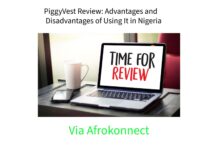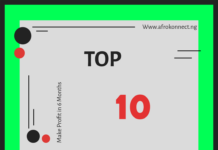Welcome to this post about How to Get a Business Loan in Nigeria, via Afrokonnect. Access to finance is one of the biggest hurdles for entrepreneurs and business owners in Nigeria. Whether you’re launching a new venture or scaling an existing enterprise, securing a business loan can provide the capital you need to grow, purchase equipment, hire staff, or manage cash flow.
However, the process of getting a business loan in Nigeria can be daunting—especially for small and medium-sized enterprises (SMEs) that often face strict lending criteria, high interest rates, or limited financial documentation.
This comprehensive guide will walk you through everything you need to know about getting a business loan in Nigeria—from understanding the types of loans available to navigating the application process and avoiding common pitfalls.
Types of Business Loans in Nigeria
Before you apply for a loan, it’s important to know which type suits your business needs. Here’s a breakdown of common business loan types available in Nigeria:
1. Short-Term Loans
-
Duration: Up to 12 months
-
Purpose: Working capital, emergency funding, inventory restocking
-
Best for: Businesses with seasonal demand or short-term cash flow gaps
Example: A retailer in Lagos may take a short-term loan to restock goods before the Christmas rush.
2. Long-Term Loans
-
Duration: 1–10+ years
-
Purpose: Business expansion, asset acquisition, large capital projects
-
Best for: Established businesses with solid financials
Example: A manufacturing firm in Aba may use a long-term loan to build a second factory or purchase automated machinery.
3. Working Capital Loans
-
Used to finance everyday operations like payroll, rent, and utilities
-
Often structured as revolving credit or overdrafts
Note: This type of loan is not meant for long-term investments.
4. Equipment or Asset Financing
-
Purpose: Purchase of machinery, vehicles, computers, or production tools
-
The equipment often serves as collateral
Example: A transportation company might finance new delivery vans through asset financing.
5. Invoice Financing (Receivables Financing)
-
Lenders advance you a percentage of your outstanding customer invoices
-
Helps improve cash flow while waiting for clients to pay
Useful For: Service-based businesses or contractors working with large organizations that have 30- to 90-day payment terms.
Eligibility Criteria for Business Loans in Nigeria
While each lender has unique requirements, the following criteria are commonly used to evaluate applicants:
1. Business Registration
-
Your business must be registered with the Corporate Affairs Commission (CAC)
-
You should possess a valid Certificate of Incorporation and Tax Identification Number (TIN)
2. Business Age and Track Record
-
Most lenders prefer businesses with at least 6 to 12 months of operations
-
Startups may need to apply for special financing or grants designed for new businesses
3. Financial Performance
-
Lenders will assess your:
-
Monthly revenue
-
Profit margins
-
Debt obligations
-
Bank statements
-
Existing loans
-
4. Collateral (in Some Cases)
-
While some microfinance institutions and digital lenders offer unsecured loans, traditional banks often require:
-
Property documents
-
Vehicles
-
Fixed deposits
-
Equipment
-
How to Apply for a Business Loan in Nigeria (Step-by-Step)
Step 1: Prepare a Solid Business Plan
A convincing business plan shows lenders that your business is viable and you have a roadmap for success.
Your plan should include:
-
Executive summary
-
Market analysis
-
Operational structure
-
Financial projections
-
Loan usage and repayment plan
Tip: Use templates from SMEDAN or commercial banks’ SME portals.
Step 2: Check Your Credit Score and History
Your business and personal credit history influence your eligibility. In Nigeria, credit records are kept by:
-
CRC Credit Bureau
-
CreditRegistry Nigeria
-
FirstCentral Credit Bureau
- How to Build Business Credit in Nigeria
Pro tip: Review your credit report and resolve any outstanding issues before applying.
Step 3: Choose the Right Lender
Options include:
| Lender Type | Example Institutions | Ideal For |
|---|---|---|
| Commercial Banks | Zenith, Access, FirstBank, GTBank | Larger, established businesses |
| Microfinance Banks | LAPO MFB, Accion MFB, Baobab | SMEs, startups |
| Digital Lenders | Carbon, Renmoney, Lidya, Payhippo | Fast approval, short-term loans |
| Government Agencies | BOI, DBN, NIRSAL, SMEDAN | Special intervention funds |
Step 4: Gather Required Documents
Common requirements include:
-
Business registration documents (CAC Certificate, TIN)
-
Valid means of identification (National ID, Driver’s License, International Passport)
-
Business plan
-
Tax clearance certificate
-
Bank statements (usually 6–12 months)
-
Audited financials (for larger loans)
Step 5: Submit Your Application
Most lenders now accept online applications. Carefully fill out all forms and upload your supporting documents. For walk-in applications, speak directly to a relationship officer.
Avoid errors or incomplete submissions—they can delay processing.
Step 6: Wait for Review and Approval
The processing period can range from 3 days to several weeks depending on:
-
Loan amount
-
Institution type
-
Your documentation
- Loan Apps in Nigeria without collateral
Step 7: Receive Disbursement and Begin Repayment
Once approved, the funds will be disbursed to your business account. Use the funds strictly for the purpose stated in your application.
Set up a repayment calendar and prioritize loan servicing to maintain your credit score.
Tips to Improve Your Chances of Loan Approval
-
Register with CAC and maintain up-to-date tax filings
-
Maintain good cash flow and low debt levels
-
Avoid returned cheques or bounced payments
-
Develop strong banking relationships
-
Start with smaller facilities to build creditworthiness before applying for larger amounts
Common Challenges Faced by Businesses
1. Limited Access to Credit
Despite Nigeria’s growing financial sector, SMEs still face difficulty accessing credit due to:
-
Poor documentation
-
Inadequate credit history
-
Risk-averse lending policies
2. High Interest Rates
Interest rates on SME loans can range from 15% to 35% annually, depending on the lender and perceived risk.
Tip: Shop around and negotiate terms where possible.
3. Stringent Collateral Requirements
Many SMEs lack the collateral that traditional lenders demand. If you’re in this position:
-
Consider asset-based financing
-
Explore unsecured digital loans
-
Apply for government-backed funding
4. Limited Financial Literacy
Many entrepreneurs struggle with:
-
Budgeting
-
Preparing financial statements
-
Understanding loan terms
Recommendation: Take courses through platforms like SMEDAN, BOI, or financial literacy webinars offered by banks.
Additional Resources
Here are a few government and non-government platforms that support SMEs:
| Resource | Description |
|---|---|
| SMEDAN | Offers training, capacity building, and access to government loans |
| BOI (Bank of Industry) | Provides tailored loans for manufacturing, agro-processing, tech, and more |
| NIRSAL | Offers agricultural financing and guarantees |
| NASME | Advocates for SME-friendly policies and offers business support |
| NEPC | Supports export-oriented businesses in accessing export grants |
Conclusion: Preparation is Power

Securing a business loan in Nigeria may seem complex, but with the right preparation, it’s very achievable. By choosing the right loan product, organizing your documents, maintaining a healthy financial record, and approaching the right lenders, you can significantly boost your chances of success.
Remember: Don’t just chase money—chase sustainable financing that aligns with your business goals.
Final Checklist for Getting a Business Loan in Nigeria
-
Business registered with CAC
-
Clean credit record
-
Clear business plan and financials
-
Documents ready (tax, ID, statements)
-
Right lender selected
-
Application submitted and followed up
-
Loan used for its intended purpose
-
Repayment plan in place
On that note, this brings us to the end of this post about How to Get a Business Loan in Nigeria, via Afrokonnect. Thank you for reading to the very end, we will love to hear what you think about the topic if you made it here. Kindly share your opinion below, and do not forget to like and share this post before you leave.















